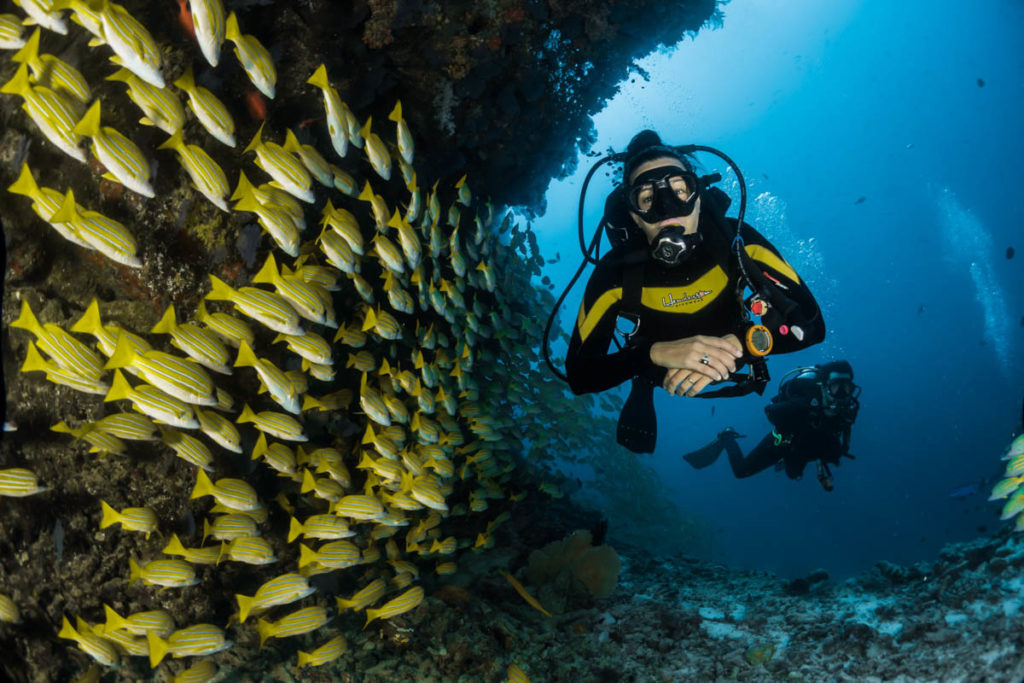At least 1.2 million Americans are estimated to scuba dive, according to DEMA, and some newbies wonder what they should eat and drink before doing this exciting form of physical activity. They also want to know how long they should wait to dive after eating or drinking. The truth is that there are lots of great nutrition and hydration tips for novice scuba divers. Learning about the link between proper nutrition and great scuba diving sessions is important, especially for beginners that want to stay safe during their dives.
Keep meals on the small side
When preparing to dive, stick to smaller meals that are easy to digest. Don’t go overboard with big portions. Small meals every few hours is probably the safest strategy. Another tip is to keep those small meals on the bland side. You shouldn’t indulge in spicy, oily, or acidic fare, as you don’t want digestive discomfort while you’re beneath the waves. While the main tip is not to overfeed yourself, as digestion requires a lot of energy that you could otherwise use to power yourself underwater, you should be sure to have plenty of healthy fluids that prevent dehydration. It’s best to ingest these fluids in the a.m. Of course, a quick bathroom break before a dive is a great way to get rid of any excess fluids that your body doesn’t need.
Consider taking beneficial supplements
Certain dietary supplements, such as lysine, make it easier to recover from physical exertion, which means they are good choices for scuba divers at every level. Lysine is classified as an amino acid. It’s an essential amino acid that your body needs, but can’t produce on its own. It needs to come from external sources. Many athletes who work out a few times a week find that taking lysine supplements helps them to perform better and recover faster. Other great supplement options for scuba fans include vitamin B complex, which enhances energy levels, and vitamin C, which provides immune system support.
Wait 2 hours to dive after eating
For an optimal and safe dive, eat at least a couple of hours before getting into the water. When it comes to fluids, don’t drink them less than half an hour before a dive. Eating shortly before a dive may cause muscle cramps that increase the risk of problems in the water. Hydration is important, but it’s wise to finish hydrating 30 mins. before diving, so you’ll have a chance to empty your bladder if you need to. When it comes to alcoholic beverages, avoid them before a dive, as even a touch of alcohol may impair your judgment. You need to be alert while you’re underwater.
When you stick to small and bland meals, beef up your system with supplements, and eat and drink well before your dive, you’ll be nourishing your body like the pro divers do. So, why not try these tips before your next newbie scuba diving adventure?







